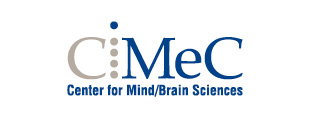Overview | Research directions | Members | Publications | Ongoing Collaborations
Overview
Attention, learning and motivation are key mental functions that ensure an efficient interaction with the environment. Although they are often studied separately, common sense and increasing scientific evidence suggest that they largely interact in shaping the organism behavior. For example, the deployment of attention is not only affected by the salience of the stimuli and by the goals of the observers, but also by the capacity of the brain to learn to filter the irrelevant distracting information. At the same time, stimuli with a high motivational significance can shape the allocation of attention in the visual field, and stimuli regularly paired with reward can gain high attentional priority by means of conditioning processes.
Research directions
- Motivational and attentional salience - The aim of this project is to understand the conditioning mechanisms by means of which initially neutral stimuli can acquire attentional and motivation salience when systematically paired with appetitive or aversive stimuli. Our recent studies show that once a reward-predicting stimulus has gained attentional salience, this attentional priority outlasts reward devaluation, thus making the conditioned stimulus autonomous in guiding the explorative behavior of the organism. Understanding these cognitive processes may have important implication for our understanding of the psychological mechanisms involved in different forms of addiction.
- Learning to ignore the irrelevant information - The capacity to overcome distraction is a key feature of a cognitive system that must ensure an efficient interaction with the surrounding environment, but the underlying psychological and neural mechanisms remain elusive. The aim of this line of research is to study the cognitive mechanisms underlying distractor filtering, and to show that our brain can capitalize on habituation, an ancestral form of learning that we share with other sub-human animals, to learn to ignore the distracting stimulation.
Members
- Massimo Turatto, Principal Investigator
- Luca Betteto, PhD Student
Publications
For a complete list: Massimo Turatto personal page
Ongoing Collaborations
- Leonardo Chelazzi, University of Verona, Italy
- Cinzia Chiandetti, University of Trieste, Italy
- Maurizio Codispoti, University of Bologna, Italy
- Matteo Valsecchi, University of Bologna, Italy
- Matteo De Tommaso, Research fellow

